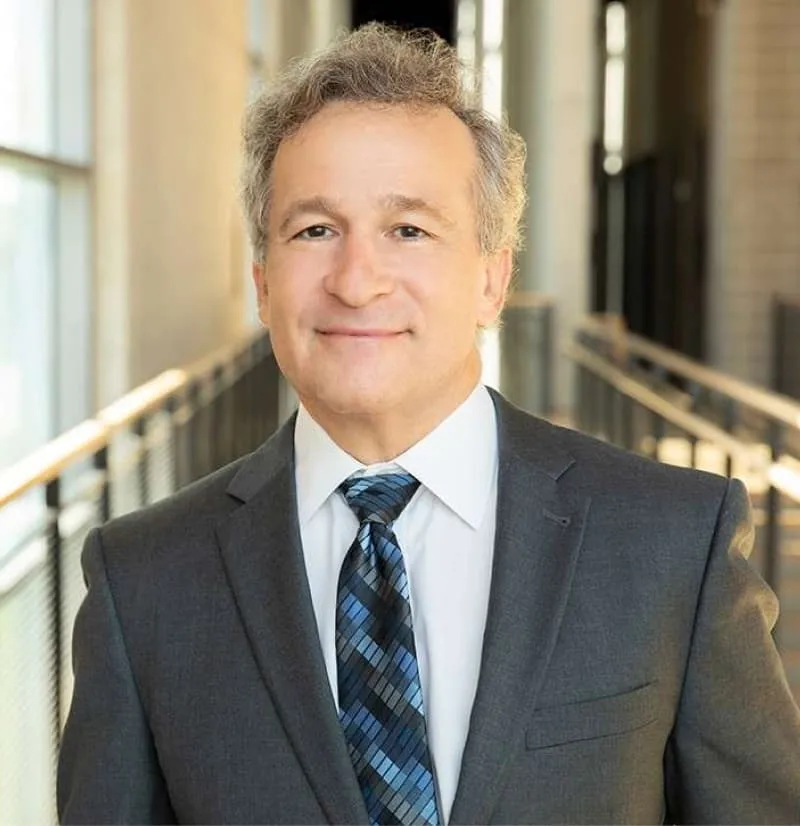Medical Justice provides consultations to doctors facing medico-legal obstacles. We have solutions for doctor-patient conflicts, unwarranted demands for refunds, online defamation (patient review mischief), meritless litigation, and a gazillion other issues. We also provide counsel specific to COVID-19. If you are navigating a medico-legal obstacle, visit our booking page to schedule a consultation – or use the tool shared below.
“Can Medical Justice solve my problem?” Click here to review recent consultations…
all. Here’s a sample of typical recent consultation discussions…
- Former employee stole patient list. Now a competitor…
- Patient suing doctor in small claims court…
- Just received board complaint…
- Allegations of sexual harassment by employee…
- Patient filed police complaint doctor inappropriately touched her…
- DEA showed up to my office…
- Patient “extorting” me. “Pay me or I’ll slam you online.”
- My carrier wants me to settle. My case is fully defensible…
- My patient is demanding an unwarranted refund…
- How do I safely terminate doctor-patient relationship?
- How to avoid reporting to Data Bank…
- I want my day in court. But don’t want to risk my nest egg…
- Hospital wants to fire me…
- Sham peer review inappropriately limiting privileges…
- Can I safely use stem cells in my practice?
- Patient’s results are not what was expected…
- Just received request for medical records from an attorney…
- Just received notice of intent to sue…
- Just received summons for meritless case…
- Safely responding to negative online reviews…
We challenge you to supply us with a medico-legal obstacle we haven’t seen before. Know you are in good hands. Schedule your consultation below – or click here to visit our booking page.
The Supreme Court of Ohio just ruled the following: The cut-off date to file a med-mail suit can be extended if the accused flees the country. Plaintiffs typically have four years to file a lawsuit after alleged harm occurs. The Court ruled those who flee the country do not benefit from this layer of “protection.”
Justice Michael Donnelly wrote that if a defendant “absconds of conceals” himself, the corresponding statute of repose is extended. At least for medical claims.
A valuable piece of trivia. The question on everyone’s minds: What sequence of events led to that declaration?
Meet Dr. Abubakar Atiq Durrani. The FBI arrested Dr. Durrani in 2013. He then fled to Pakistan. Charges against him include healthcare fraud, mail fraud, and the illegal distribution of drugs.
His odyssey is over ten years old; the federal government indicted Dr. Durrani in 2013 for criminal activities related to his medical practice. Many of these activities occurred before 2012. He fled to Pakistan to avoid extradition to the US.
The Supreme Court’s ruling resurrected many malpractice claims filed by Dr. Durrani’s former patients.
To provide one example: Dr. Durrani performed surgery on a patient (Richard Elliot) in 2010. Elliot developed a severe infection within one week; he lost 80 pounds. Elliot filed a medical malpractice lawsuit against Durrani in 2015, five years later. Before the Supreme Court’s ruling, Elliot’s claim would have been one year too late.
This patient wasn’t alone; his case represents one of hundreds filed against Dr. Durrani. The lawsuit also implicated hospitals. And they all asked the trial courts to discard the med mal cases, arguing that the four-year statute of repose made the suits non-starters.
The court dismissed Elliot’s case. He then appealed the decision to the First District Court of Appeals. He argued that since Durrani fled the state (and eventually the entire country), he forfeited the protections afforded to him by the four-year cut-off.
The courts partially reversed the decision, finding that the laws extended the time to sue Durrani – but that these laws did not apply to Durrani’s clinic or the hospitals where he operated. Dr. Durrani has since appealed to the Supreme Court, which agreed to hear the case.
The back-and-forth continued until December of this year. If you’re curious, an oral argument of the case is available for viewing.
This case is challenging because several statues interact with one another. And each statute is responsible for defining and limiting the effects of specific legal jargon. We’ve defined the key terms below.
Statute of limitations: A law passed by a legislative body to set the maximum time after an event within which legal proceedings may be initiated.
Statute of repose: A law that extinguishes a right of action after a specified period has elapsed, regardless of whether the cause of action has accrued.
In the state of Ohio, R.C. 2305.113 (A) determines the statute of limitations for filing a med-mal lawsuit. According to this statute, the lawsuit must be filed within one year after the patient discovers the injury. Straight-forward enough.
R.C. 2305.113 (C) defines the statute of repose – or the absolute point when a potential plaintiff forfeits his ability to file a case.
Generally, in the state of Ohio, a suit must be initiated within four years of the medical procedure, regardless of when the patient discovered the injury. If the patient doesn’t attempt to file a case until after that four-year period, it’s generally too late.
So, what happens if the defendant flees the state?
This led the Court to study yet another related statute, R.C. 2305.15, which finally yielded an answer.
This statute states that when a person is “out of state, has absconded, or conceals oneself, the period of limitation for the commencement of the action as provided in sections 2305.04 to 2305.14 does not run during the time the person is absent from the state.”
What does that mean?
Imagine you practice in Ohio. You operate on a patient. Regardless of the outcome, an hourglass tracking a four-year time period turns upside down the moment the procedure concludes. The patient has four years to sue. After that, it’s too late. The Supreme Court of Ohio ruled that the four-year clock stops if the doctor exits the state – or, in the case of Dr. Durrani, the country.
Therefore, the Supreme Court ruled that Dr. Durrani was still vulnerable to litigation, even though more than four years had elapsed since the alleged malpractice event occurred.
The Court’s ruling was 4-3, meaning there were dissenting opinions. One such came from Justice Sharon Kennedy. We’ve summarized one of them below, in the interest of showcasing both sides of the legal coin.
Citing Black’s Law Dictionary, Justice Kennedy wrote that “period of limitation” is synonymous with “statute of limitations” and does not apply to a statute of repose. She noted that the General Assembly in 1831 enacted the first tolling period for lawsuits against those who leave the state, and “(f)or almost 172 years, there was no statute of repose to which the absconded-defendant legislation could apply.”
The statute of repose specific to this case came about in 2002. To briefly review, the statute of repose defines the “cut-off date” for a med-mal lawsuit. Provided the doctor doesn’t flee the state (or country), a patient has four years to sue after the alleged malpractice.
The purpose of the statute of repose is to provide doctors with a hard “cut-of-point” as far as fear of litigation was concerned. After four years, you’re in the clear.
Justice Kennedy stood firm in her dissent, stating that due to the precedent set by this case, “when a medical provider leaves Ohio to practice in another state or to retire, he or she potentially has unending exposure to suit for injuries that occurred years or even decades earlier.”
A sobering thought. The facts of the case suggest Dr. Durrani has done substantial harm and will be held accountable. But it is hard to ignore Justice Kennedy’s argument.
What do you think? Let us know in the comments below.
Medical Justice provides consultations to doctors facing medico-legal obstacles. We have solutions for doctor-patient conflicts, unwarranted demands for refunds, online defamation (patient review mischief), meritless litigation, and a gazillion other issues. We also provide counsel specific to COVID-19. If you are navigating a medico-legal obstacle, visit our booking page to schedule a consultation – or use the tool shared below.
“Can Medical Justice solve my problem?” Click here to review recent consultations…
all. Here’s a sample of typical recent consultation discussions…
- Former employee stole patient list. Now a competitor…
- Patient suing doctor in small claims court…
- Just received board complaint…
- Allegations of sexual harassment by employee…
- Patient filed police complaint doctor inappropriately touched her…
- DEA showed up to my office…
- Patient “extorting” me. “Pay me or I’ll slam you online.”
- My carrier wants me to settle. My case is fully defensible…
- My patient is demanding an unwarranted refund…
- How do I safely terminate doctor-patient relationship?
- How to avoid reporting to Data Bank…
- I want my day in court. But don’t want to risk my nest egg…
- Hospital wants to fire me…
- Sham peer review inappropriately limiting privileges…
- Can I safely use stem cells in my practice?
- Patient’s results are not what was expected…
- Just received request for medical records from an attorney…
- Just received notice of intent to sue…
- Just received summons for meritless case…
- Safely responding to negative online reviews…
We challenge you to supply us with a medico-legal obstacle we haven’t seen before. Know you are in good hands. Schedule your consultation below – or click here to visit our booking page.
Jeffrey Segal, MD, JD
Chief Executive Officer and Founder
Dr. Jeffrey Segal, Chief Executive Officer and Founder of Medical Justice, is a board-certified neurosurgeon. Dr. Segal is a Fellow of the American College of Surgeons; the American College of Legal Medicine; and the American Association of Neurological Surgeons. He is also a member of the North American Spine Society. In the process of conceiving, funding, developing, and growing Medical Justice, Dr. Segal has established himself as one of the country’s leading authorities on medical malpractice issues, counterclaims, and internet-based assaults on reputation.
Dr. Segal was a practicing neurosurgeon for approximately ten years, during which time he also played an active role as a participant on various state-sanctioned medical review panels designed to decrease the incidence of meritless medical malpractice cases.
Dr. Segal holds a M.D. from Baylor College of Medicine, where he also completed a neurosurgical residency. Dr. Segal served as a Spinal Surgery Fellow at The University of South Florida Medical School. He is a member of Phi Beta Kappa as well as the AOA Medical Honor Society. Dr. Segal received his B.A. from the University of Texas and graduated with a J.D. from Concord Law School with highest honors.
In 2000, he co-founded and served as CEO of DarPharma, Inc, a biotechnology company in Chapel Hill, NC, focused on the discovery and development of first-of-class pharmaceuticals for neuropsychiatric disorders.
Dr. Segal is also a partner at Byrd Adatto, a national business and health care law firm. Byrd Adatto was selected as a Best Law Firm in the 2023 edition of the “Best Law Firms” list by U.S. News – Best Lawyers. With decades of combined experience in serving doctors, dentists, and other providers, Byrd Adatto has a national pedigree to address most legal issues that arise in the business and practice of medicine.





Justice Kennedy is correct in her interpretation. In the case cited, the patient knew of the harm immediately, (within one week of surgery) and yet delayed for5 years filing a malpractice case, which is long after the statute of limitations ran out. The fact that the physician left the state in the interim period is irrelevant. The fact that he was out of the state or out of the country was irrelevant. There is no question based on the facts presented that this physician is not a good surgeon, and indeed should have had his license removed pending medical board action. But that doesn’t then open the can of worms of unending malpractice claims. It this law of repose stands, then that obviates the malpractice statute of limitations unless the physician chains himself to the state in which he is practicing. That strikes me as being both arbitrary and capricious. The fact that the court issued a split decision is also telling. The statute of limitations should remain supreme in this instance.
It should also be emphasized that the 1 year statute of limitations is from the time that the injury is discovered, not from the time of the incident. So for example, if an OB/GYN leaves a sponge in the abdomen, and the patient has abdominal pains of increasing severity over time, but it is not until she has a CT scan two years later that the sponge is found, that is the date that the statute of limitations starts.
Our medical liability laws are a joke, and patients can sue for nothing or anything virtually limited only to the creativity of the lawyer (on contingency of course) filing the case.
There is also a concern about retirement. Thank God I did not have to go to court for a malpractice action against me, but I think that was mainly a matter of luck. But I did retire at age 53 after ownership of a Medicare Certified Surgical Center where I performed years of DPM surgery. Some of it was quite invasive and required transferring patients between prone and supine positions after anesthesia. That is very risky stuff.
I purchased a tail policy from my carrier just before I retired. I think it ran for 3 years. But it was a one-time purchase. I never had a claim against me after retirement. But it could have happened; and I know some doctors who did.
Those cases were settled out of court. My point is obvious: Will we have to continue to purchase tail coverage until we pass away? And then will that coverage have to be continued through our estate?
It’s a ridiculous scenario and not particularly likely. But we wonder…
Michael M. Rosenblatt, DPM
Dr. Rosenblatt:
I purchased a permanent tail, which was more expensive than a three year tail. The reason that I did so was specifically because of the phrase in malpractice law… one year from when the injury is discovered. For some states it is 2 or 3 years. For some states it could be the age of majority + 1 or 2 years. I would contend that anesthesia injuries are pretty quick to show up.
I would also point out that if someone has a heart attack 29 days after anesthesia that is supposedly now related to the anesthetic. I think this is complete and utter BS. We take terrible risk patients to the operating room, and we take patients who are completely normal externally but have horrendous arteriosclerosis and are asymptomatic. But somehow magically if something happens to them in the post op period, we as anesthesiologists can be blamed going out 30 days (sometimes more), EVEN IF there were no perturbations in the patients blood pressure or heart rate, during surgery or in the recovery room. Again, these laws while ostensibly in place to protect patients are really there to enrich attorneys because the open the liability window so wide, one could drive a proverbial MACK truck through it.
Even for the egregious surgeon noted above, the liability window for him should not be opened because it opens the liability window for everyone else.